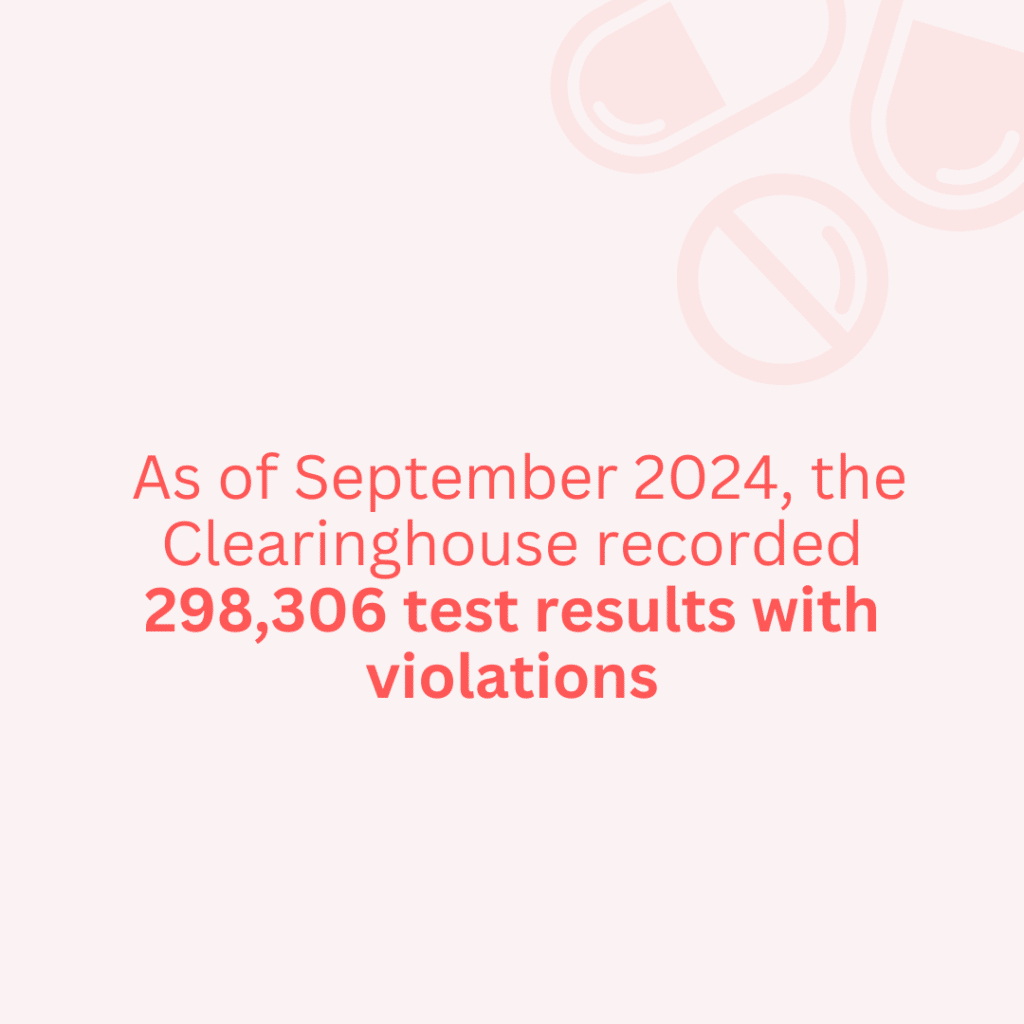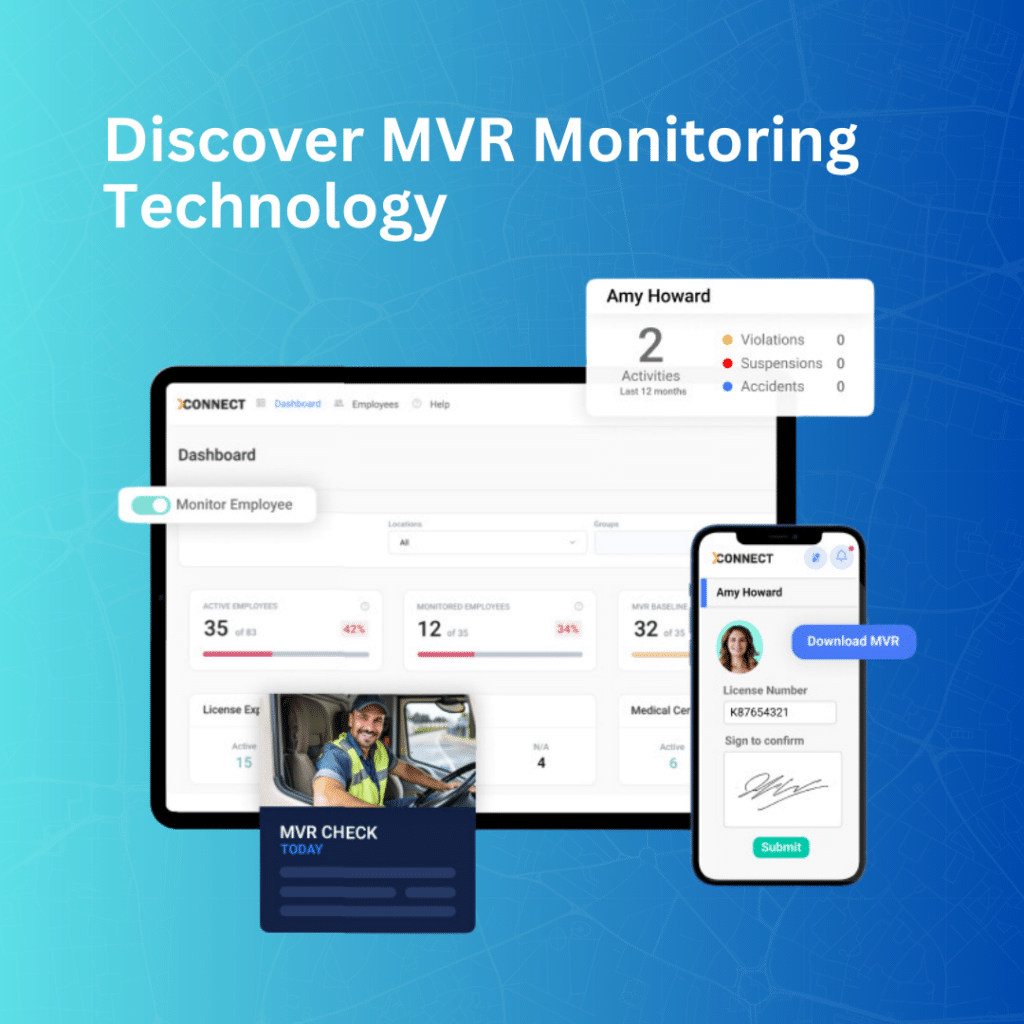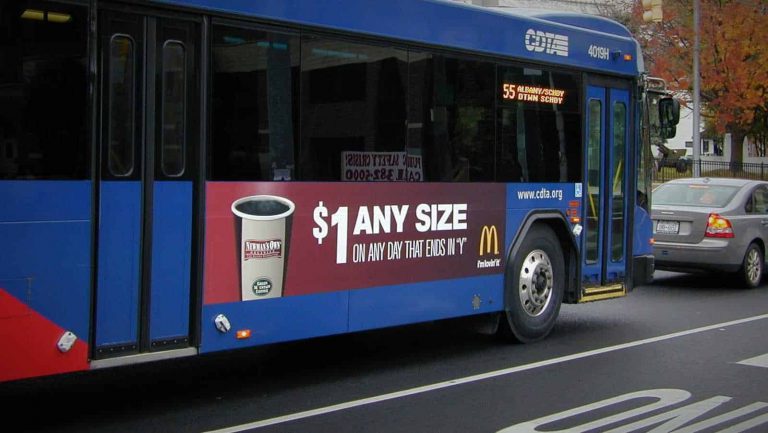FMCSA Truck Regulations 2025: What’s Coming?

With fines increasing and new compliance measures on the way, being informed is the best way to keep your operations running smoothly and avoid expensive setbacks. In this blog, we’ll discuss key FMCSA results and learnings from 2024, upcoming trucking regulations for 2025, and other expected changes.
2024 FMCSA Key Results
The 2024 FMCSA inspection results reveal critical safety and compliance challenges impacting the trucking and transportation industry.
During 2024, 93.6% of FMCSA safety investigations uncovered at least one acute or critical violation, highlighting ongoing areas for improvement:
Top Acute DOT Violations
- Allowing a driver to drive with suspended/revoked CDL
- Failing to implement an alcohol and/or drug testing program
- Using a driver who has tested positive for a drug
Read more: Avoid these top FMCSA violations with MVR Monitoring.
Top Critical DOT Violations
- Not using the appropriate method to record hours of service
- False reports of records of duty status
- Using a driver before receiving a pre-employment result
The FMCSA’s Analysis and Information (A&I) online portal provides detailed breakdowns of these violations.


The FMCSA fines also increased by 3.24% in 2024. The maximum daily penalty for DOT recordkeeping violations rose to $1,544 from the previous $1,496, and the maximum total penalty reached $15,445, up from $14,960.


As of September 2024, the Clearinghouse recorded 298,306 test results with violations since its inception on January 6, 2020. These violations encompass both drug and alcohol-related incidents.
Approximately 177,000 Commercial Driver’s License (CDL) and Commercial Learner’s Permit (CLP) holders were in a ‘prohibited’ status due to unresolved drug and alcohol violations.
2024 FMCSA Regulations
In 2024, the Federal Motor Carrier Safety Administration (FMCSA) and the Department of Transportation (DOT) introduced several significant regulatory changes impacting the trucking industry. Here’s an overview of these updates:
Introduction of Oral Fluid Drug Testing
On November 5th, 2024, the DOT amended its drug testing program to include oral fluid testing as an alternative to urine testing. This change, effective December 5th, 2024, aims to provide more flexibility in testing methods.
CDL Downgrades for Prohibited Status
Effective November 18th, 2024, State Driver Licensing Agencies (SDLAs) are mandated to downgrade commercial driving privileges for drivers with a “prohibited” status in the FMCSA’s Drug & Alcohol Clearinghouse. This status results from unresolved drug and alcohol violations and the downgrade remains until the driver completes the return-to-duty process. Read More: How MVR Monitoring Facilitates Compliance With Clearinghouse-Rule II
Safety Measurement System (SMS) Reforms
The FMCSA proposed changes to its Safety Measure System (SMS), including reorganizing safety categories, restructuring roadside violations, and simplifying violation severity weights. These adjustments are designed to enhance the accuracy and fairness of safety assessments.
Crash Preventability Determination Program (CPDP) Expansion
On December 1st, 2024, the FMCSA expanded the CPDP to review 21 specific crash types to determine preventability. Crashes deemed “Not Preventable” are excluded from the Crash Indicator Behavior Analysis and Safety Improvement Category (BASIC) and are noted in the Pre-Employment Screening Program (PSP), aiding carriers in maintaining accurate safety records.
Trucking Regulations in 2025: What’s Coming?
Several changes and proposed regulations are on the horizon for the 2025 calendar year. These updates aim to address safety, compliance, and operational efficiency within the industry.

FMCSA Launching a New Registration System
In 2025, FMCSA will roll out a new registration system designed to streamline the process, enhance user experience, and incorporate advanced verification tools. This initiative aims to make compliance more straightforward for carriers and drivers.
Elimination of MC Numbers
As part of the 2025 FMCSA Regulations, plans are underway to discontinue the use of Motor Carrier (MC) Numbers and transition to USDOT numbers as the sole identifier for carriers to simplify the industry’s identification system.
Extension of Medical Examiner’s Certification Integration Compliance Dates
Compliance with the National Registry of Certified Medical Examiners has been extended to June 23, 2025. This extension allows FMCSA and State Driver’s Licensing Agencies (SDLAs) to finalize IT system updates for seamless integration.
Delayed Rulemaking Implementation:
- FMCSA is advancing a proposal requiring motor carriers to limit truck speeds via electronic engine control units (ECUs). This mandate is delayed into 2025, with further details pending.
- FMCSA is also delaying proposed changes to ELD operations, including whether they should apply to pre-2000 engines. A notice of proposed rulemaking scheduled for October 2024 has been pushed back to June 2025.
- Automatic Emergency Braking for Light Vehicles, which requires automatic emergency braking (AEB), pedestrian automatic emergency braking (PAEB), and forward collision warning (FCW) systems on all new light vehicles, will be effective starting January 27th, 2025.
Updates to Hazardous Materials Regulations
- PHMSA proposes clarifications for hazmat transportation, including rail tank car design, highway cargo tank specifications, and requalification requirements. The final rule will address tank markings for distillate fuels. Public comments are accepted until January 27th, 2025.
Improving Driver Safety and Compliance in 2025
At Embark Safety, we understand the challenges fleets face in staying compliant with evolving FMCSA 2025 trucking regulations. Our intuitive MVR Monitoring platform is tailored to simplify driver compliance and streamline the driver qualification process.
By connecting to state DMVs, MVR Monitoring reports carriers on negative changes to employees’ MVRs, such as DUIs and suspensions. Additionally, it helps manage license and medical card expirations, streamlines driver qualification files, and more.
Interested in seeing how our solution can help you improve safety and compliance? Contact us
*We are not lawyers. Consult with your legal counsel to ensure your processes and procedures meet/ or exceed safety standards and compliance regulations. Please read our legal disclaimer.







